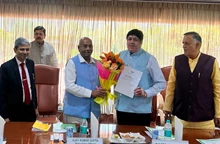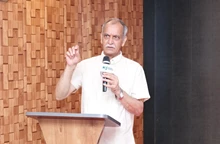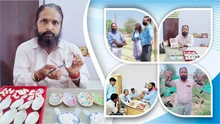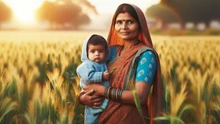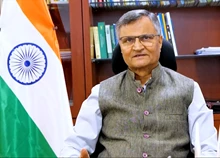
According to Rajesh Gokhale, Secretary, Department of Biotechnology, the Genome India Project, a Centre-backed endeavour to sequence 10,000 Indian human genomes and develop a database, is nearly two-thirds complete.
"We have sequenced nearly 7,000 genomes, with 3,000 already available for public access by researchers. We expect the 10,000 genomes to be fully sequenced by the end of the year," Gokhale said on Friday at a conference hosted by the Association of Biotech-Led Enterprises (ABLE), an industry body.
The initiative involves over 20 institutions from across India, with analysis and coordination handled by the Centre for Brain Research at the Indian Institute of Science (IISc), Bangalore.
The Indian population of 1.3 billion people is made up of over 4,600 different ethnic groupings, many of whom are endogamous. These factors have contributed to the current population's genetic diversity. As a result, the Indian population has different variances, and numerous disease-causing mutations are frequently amplified among certain of these populations.
As a result, findings from population-based or disease-based human genetics research in other groups around the world cannot be generalized to Indians, according to an IISc note.
The creation of an Indian genome database implies that researchers from all over the world can learn about genetic variants that are specific to India's population groupings and utilise this information to tailor medications and cures. The United Kingdom, China, and the United States are among the countries with plans to sequence at least one million of their genomes.
"It is necessary to create public infrastructure such as genomic databases - similar to what the IT industry has created - for India's biotechnology sector to expand and have more valuable companies and start-ups," said Vijay Chandru, co-founder of Strand Life Sciences and former president of ABLE.
Kiran Mazumdar-Shaw, chairman of Biocon and co-founder of ABLE, stated that establishing such genomic-database infrastructure requires more "public-private partnerships."







